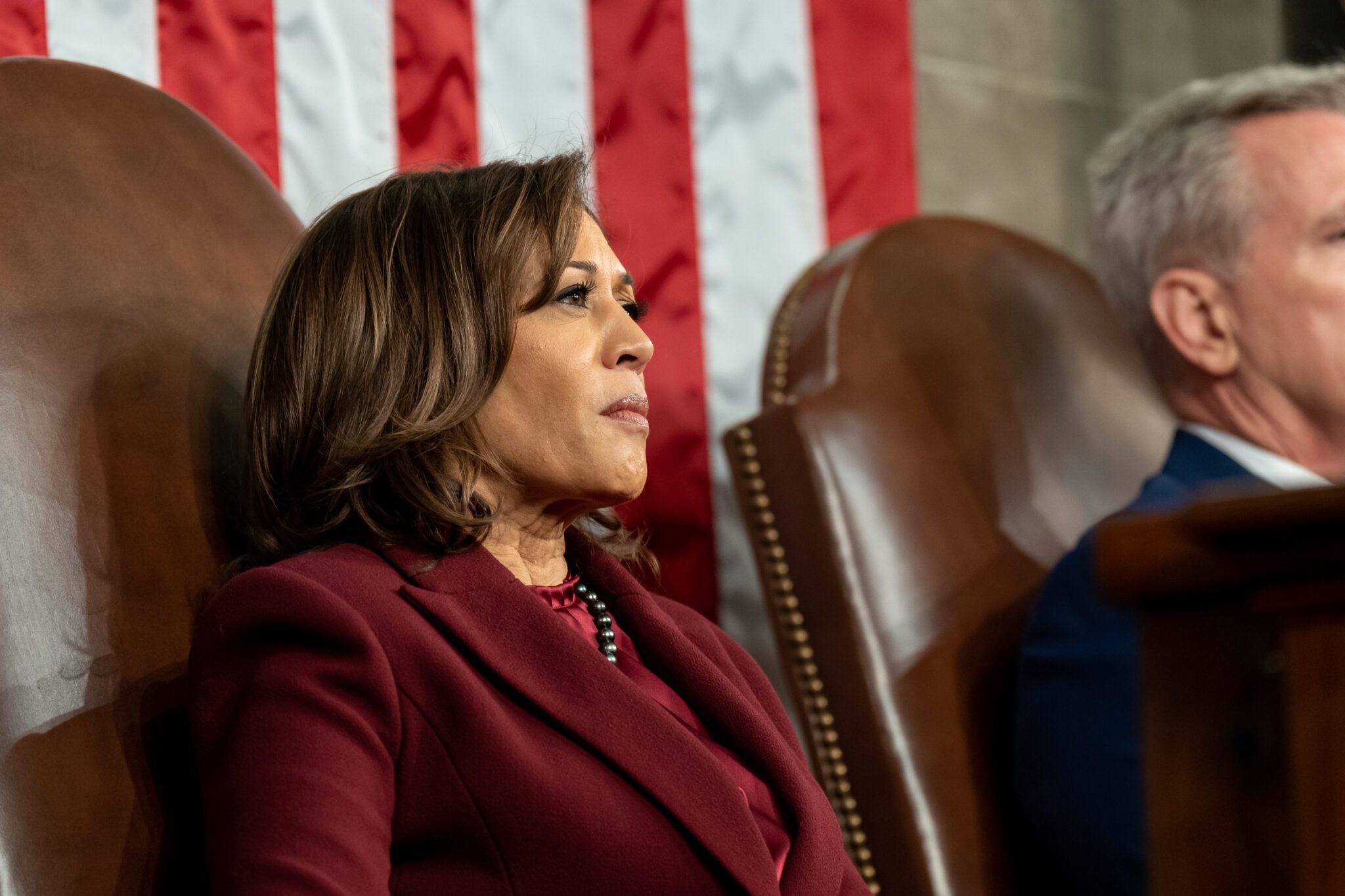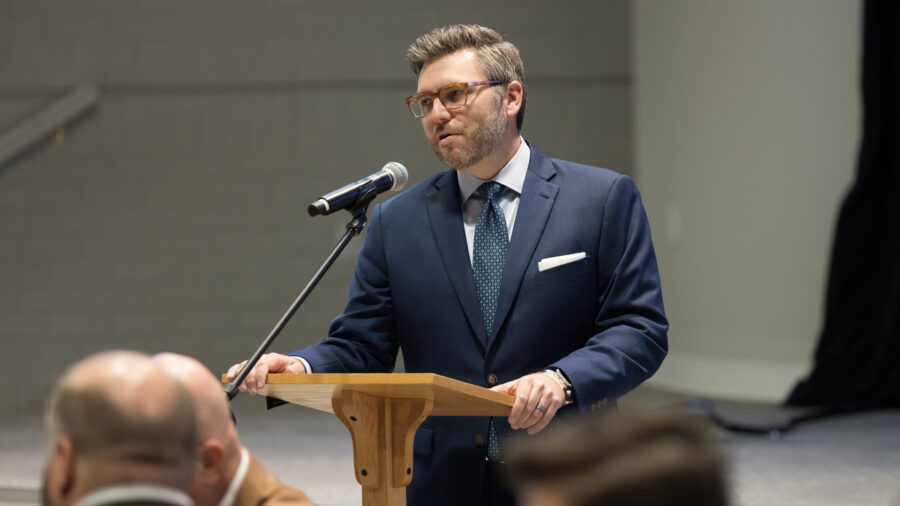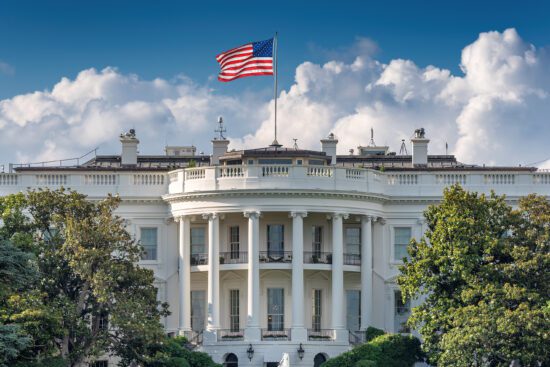This article has been adapted from President Brent Leatherwood’s remarks to the trustees of the ERLC on Sept. 10, 2024.
As Paul instructs in Philippians 4:1–13, over the last three years, I have sought to guide the Ethics and Religious LIberty Commission:
- to move forward, laboring for the gospel, not by our feeble, exhaustable strength, but the strength that comes from the Lord;
- to be known for reasonableness and not for anxiety;
- and when the chaos comes, to be known for peace and contentment.
I believe this is what our fallen, diseased culture absolutely needs right now.
The creation of the SBC’s ERLC to serve churches
So why do we have an ERLC? What is it that made this Convention of churches band together to put forth this commission? Asking thee questions and understanding the answers helps clarify the work of this entity.
The SBC is a network of 45,000 cooperating churches across this nation that, as we practice our faith and obedience to the Lord, gives us an outward-facing posture toward a lost and searching world. That posture is directly reflective of the Great Commission given to us by Jesus in Matthew 28.
For Southern Baptists, that means we not only apply what we are instructed to do in the Great Commission to the international mission field or evangelistic efforts in communities right here at home, but we also believe it should be applied to the tough soil that is the public square.
That is why this Commission was created over 100 years ago and has continued through tumultuous moments and cultural flashpoints over a century. Essentially, to work here at this entity on a daily basis, one must bring the mindset of a missionary—to be a witness for the gospel in all of our interactions with:
- elected officials,
- lawmakers,
- judges,
- prime ministers and presidents,
- the staff behind these leaders,
- and the various journalists we have the opportunity to speak to.
Taking this approach not only ensures we bring a Great Commission mindset to the office each day; it ensures we see the full scope of Acts 1:8 in our work: “But you will receive power when the Holy Spirit has come upon you, and you will be my witnesses in Jerusalem and in all Judea and Samaria, and to the end of the earth.”
The work of the ERLC to serve churches
So how does that understanding of the launching of this Commission into the stormy waters of the public square inform the ways we conduct ourselves in carrying out our ministry assignment? Again, applying Paul’s wisdom to the Philippians, we are to be known for our reasonableness.
That means there’s a level of consistency—a through line—to the places and figures we engage, the areas of interest we engage, and how we determine whether to engage. This plays out in the ways all of us can see:
- interactions with Congress and the White House;
- briefs before the U.S. Supreme Court; and
- policy agendas and explainers.
As you study the last 30 years or so of this entity, you begin to see patterns to the work we do. That is why I formalized the categories of the work we do into four areas:
- Life
- Religious Liberty
- Marriage & Family
- Human Dignity
And then we arrive at how we engage. This is where there have been questions and criticisms, some of it understandable and legitimate. To be clear, we have a dual mandate: 1. serve in the public square, and 2. assist the churches of this Convention.
The second mandate propels the first. And that is where I may differ from my predecessors to some extent.
Richard Land is a brilliant Christian philosopher who broke ground on new positions regarding preborn life, religious liberty, racial reconciliation, and immigration. A reporter asked him recently about the ‘consensus’ he operated with, to which Dr. Land responded, ‘We had no such thing, we had to forge what we now see as consensus. As he did that important work, he referred to the ERLC as the ‘conscience of the convention.’
Russell Moore is a powerful theologian and prophet who advanced a robust view of a pro-life framework and led a pursuit of racial unity. He has also been an advocate for justice regarding sexual abuse within the Church. His dynamic words often landed as preaching to the churches, even as he rightly pointed out the idolatry taking root in our culture.
The ERLC’s servant posture
It’s abundantly clear I was preceded by incredible minds with commanding skills. But that is not me, which is not meant as a criticism of their leadership. This version of the ERLC is not the version that existed in their eras. The responsibility of assisting our churches is an integral part of our mission statement. I don’t view us as the conscience of the Convention, nor do I view us as prophets.
Instead, we aim to be the servants for our churches. This aim is shaped by my background as a deacon. That is why the first words from me provided to the media in a release when I became the permanent president of this entity were, ‘True leadership begins as service.’ This means we have to be mindful of:
- what our churches are wrestling with;
- the actions taken by the Convention;
- and the feedback from our pastors.
And—this is key––it is from our service we render to the churches that we speak into the public square and to officials so they understand the experience of our churches.
The reality of the ERLC’s work in serving churches
Does that mean we won’t get criticism or attacked by the various political attack organizations formed to undermine us? No one who has ever worked at this organization would say that. Richard Land was attacked as a liberal for crafting the racial reconciliation resolution in 1995. Russell Moore was attacked as a progressive for wanting to combat the abuse issue that so many pastors have requested help with.
And so it is with us. That is not unique and, while unpleasant, is something each of us who are privileged to work at the ERLC factor in when we agree to take up the cause in this ministry. As one pastor said to me recently, we are attacked because we represent a very real and present threat in this age to the enemy and all the havoc he wants to wreak in the public square and in the lives of believers.
The ERLC’s careful process in serving churches
In this midst of this reality, we take time to think through the steps, develop strategy, or count the cost of what any action may entail. Again, let’s look back to the first statement sent out by our team upon my election to this office:
“I am honored and humbled to be given the opportunity to serve this historic institution as its next president . . . Rooted in Scripture and guided by the Baptist Faith and Message, this team will remain fervently committed to carrying out our ministry assignment—faithfully serving our churches and growing our convictional presence in the public square on behalf of our convention.”
If that is the first time you’ve heard that, I apologize. But that framework has been with us from the beginning under my leadership. Essentially, a three-pronged test has become a real part of operations before deciding to engage an issue:
- Is a stance called for by Scripture?
- Does a stance fit within the Baptist Faith and Message?
- Are there any actions taken by the Convention, such as resolutions, that are informative of any stance?
This has played out in a few ways. In all of our policy agendas, we cite verses of Scripture and also reference various resolutions the Convention has passed that we see as consistent with our engagement on a given issue. It has also become an everyday way of conducting our public-facing work such as when we make decisions about joining coalition letters, filing a brief in a case, endorsing a policy, or opposing a policy. We have formalized this framework into a robust assessment document.
There have been moments where we feel we have been in the clear to act, yet, because of myriad other factors, we have decided to refrain from engaging, especially when it comes to issues our state conventions may have to deal with first. When we engage, we try to avoid getting ahead of a state convention’s ability to study the matter and weigh in. They know their state best, and we want to make sure we are helpfully cooperating with them, not accidentally disrupting the good work they are already doing.
I will be the first to admit I don’t expect that I have in the past or will always make the right call or that I will make the politically expedient or criticism-free call. I’ll fall short and make mistakes. All I can do is conduct myself in a manner worthy of the calling to which I have been called (Eph. 4:1).
The ERLC’s path forward in serving churches
So how do we fulfill this and operate within a tense cultural environment? We begin with a heart of service. We acknowledge the anxiety of our age and demonstrate that it is not supposed to be this way. We aim to exhibit the fruit of the Spirit in all of our actions. We take no part in the quarreling that occupies so many conversations. We always maintain our principles and convictions. And we never forget that the people we are interacting with, even those with whom we disagree, are either brothers or sisters in Christ or are human beings made in God’s image who could become our brothers or sisters in Christ one day.
Most importantly, we remind ourselves that our priority is laboring for the gospel, not because we happen to work at the ERLC, but because we are Christians called to take the hope of the Good News of Jesus Christ to the uttermost ends of the earth—including the public square.










